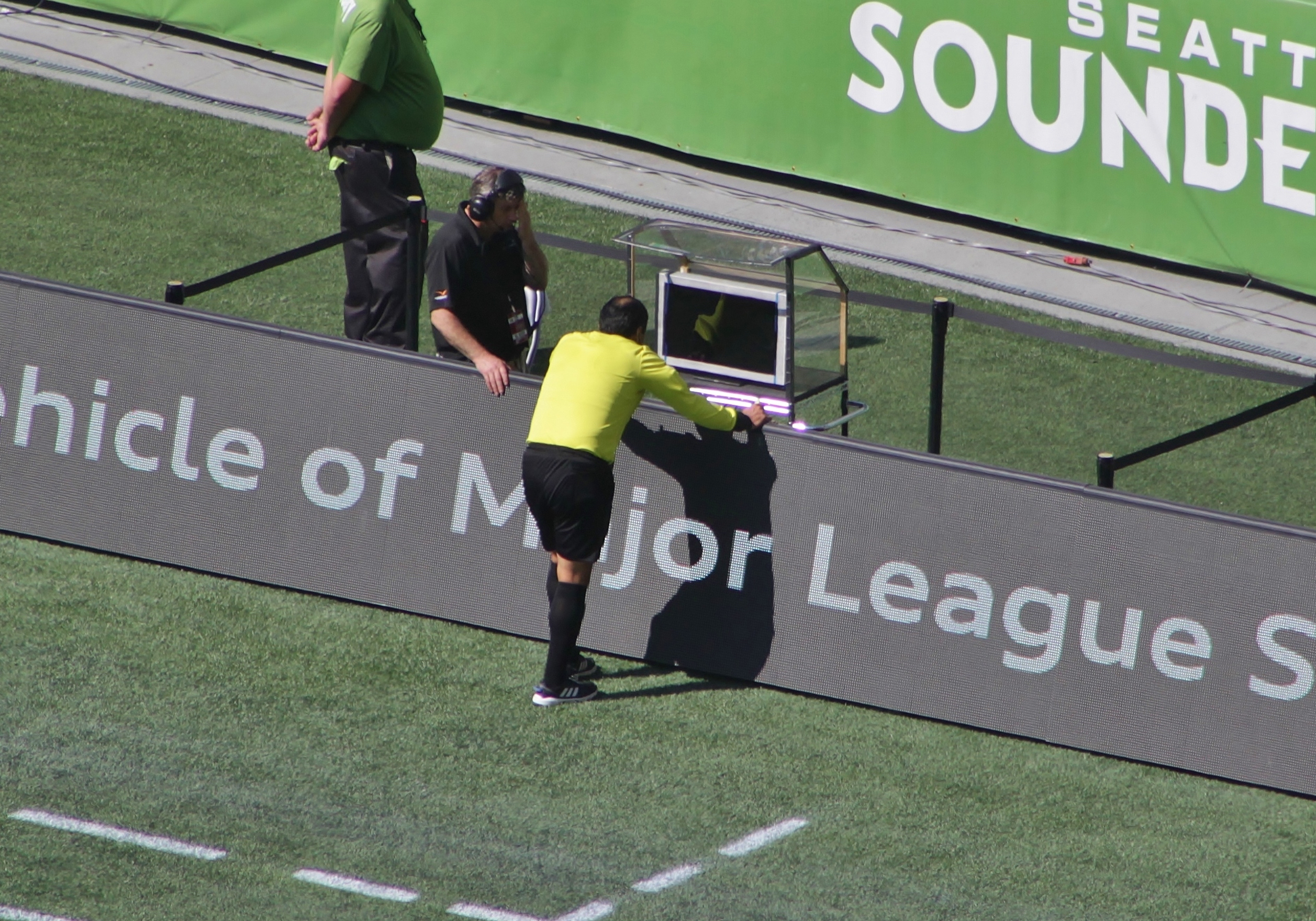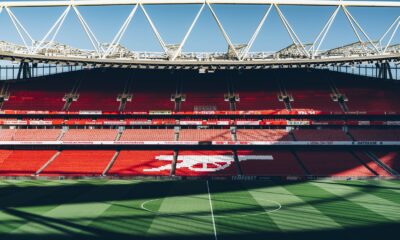Football
VAR: A Rare Defence

VAR: A Rare Defence
On the 31st March 2019, I was in a regrettably expensive pub in Amsterdam, just down the street from the suspiciously inexpensive hostel I was staying at, and I was next to a friend of mine. He is a Cardiff City supporter and season ticket holder and it was our Spring Break from university. Cardiff, who sat 18th in the table and two points from safety, welcomed Chelsea to South Wales off the back of a home win over West Ham. There was a sense of optimism. If they could get a result here, they’d gain considerable momentum.
I couldn’t tell you anything about Victor Camarasa’s goal, which came shortly after half time. However what came in the last 5 minutes is unforgettable. As a corner came in, Chelsea’s Marcos Alonso flicked the ball on for the wildly offside Cesar Azpilicueta, who scored in a moment that would spell disaster for Cardiff’s season. The tide turned, Chelsea got the winner in a game that, according to all reports, they deserved nothing from, and Cardiff ended the season relegated, two points behind Brighton in 17th.
I’m not saying that a correct call would have kept Cardiff up. However, this instance makes a point that I think has been forgotten in much of the discourse surrounding Video Assistant Referees (VAR) since the start of this season: Football was not a place of idyllic wonder and constant euphoria for every onlooking fan. Supporting a team has always meant putting up with goals and points conceded entirely due to a referee failing to spot and infringement. This was the reality for Cardiff when Craig Pawson signalled the end of the match against Chelsea. My friend was devastated, the crowd was furious, and Neil Warnock (whose meme-able reaction has gone some way to covering up the damage done by this result) couldn’t believe what had just happened to his team.
It seems that such moments have been completely forgotten now – there are complaints in near-enough every discussion regarding Video Assistant Referees (VAR) that their existence is causing enjoyment of football matches to go down. While there are problems in the system, calls for it to be scrapped is blatant nostalgia.
We have heard countless calls from managers for referees to be better at their job, and that’s when they’re feeling generous. Gordon Strachan has called a referee a clown, Neil Lennon has said that a particular referee should be out of a job, and Arsène Wenger called on referees to work harder. This is where the crux of my endorsement of VAR lies.
Arsène Wenger hit with three-game touchline ban for abuse of referee https://t.co/A8zTKdFsxc
— Guardian sport (@guardian_sport) January 5, 2018
Just asking for the referees to be better will not work. It doesn’t make sense to argue that each referee is not good enough at their job because of individual actions. If there is a problem with the standards of refereeing, it is a systematic one in the training of referees. If 15 architects from the same university course all design faulty buildings, their education must be looked at. Simply telling them to work harder and to be better will not yield positive results.
The minimum that is required for VAR to be justified, therefore, is that it improves the accuracy of decisions. With VAR in place, incidents off the ball are less likely to go unpunished and blatantly wrong calls are being flagged, for the most part. VAR is screening the decisions being made, adding an extra layer of scrutiny to try and lower the number of incorrect calls.
The common complaint is that the new technology is calling players offside by margins that have never been visible to an assistant referee. The very sight of the wretched blue and red lines on TVs causing mass fury in living rooms everywhere.
This criticism, however, ignores the fundamental fact that assistant referees have always had decisions to make in those moments. That decision, however, would have been a guess, and consistency would be impossible. VAR is making exactly the same decisions that assistant referees have always been trying to make, but technology more accurate than the human eye is helping in that decision. Improving the accuracy of decisions is the minimum that VAR must do to justify its place in football, and, in the case of offside calls, it is working. Both obvious calls and closer ones are being given more consistently in accordance with the laws of the game.
It is often argued that the attacker doesn’t gain any significant advantage from being 1cm offside, so why waste time in making decisions at such a small scale? Of course, it is logical that an attacker only slightly ahead of the defender has gained very little, but football is a game of fine margins. How often have we seen an attacker get their toe to the ball a fraction of a second ahead of a defender or an onrushing goalkeeper? Had that attacker been 1 cm further back and onside, would they still have got to the ball first? This kind of advantage very rarely can be traced back to an offside, but the fact that most players don’t gain an advantage does not mean that none do. When a goalkeeper rushes from their line when trying to save a penalty, they may still be sent the wrong way, gaining no advantage from that infringement. The rule, however, still stands.
One ‘solution’ that is being considered by governing bodies is to allocate a certain amount of leeway, in which an attacker may be offside but not penalised, with 10cm being thrown around as a possibility. Without meaning to sound harsh, this solves nothing. A precise line is still being drawn on the pitch and there will still be instances where players come incredibly close to that line. It is inevitable that a player will be found to be 10.1cm ahead of the last defender. Had they been 1mm further back, they would have been called onside, so are they now gaining an advantage?
I think that the media has played a part in influencing the public perception of these decisions, and should take some responsibility. Too many ex-players and pundits have gone on radio or TV to claim that the offside rule was far better and simpler when there had to be daylight between attacker and defender for offside to be given. The fact of the matter is that this has never been the rule – it has always been that any part of the attacker being ahead of the defender makes them offside. People who claim to be informing the public about football ought to be able to avoid these blatant episodes of misinformation, and the tendency of ex-pros to assume the superiority of football when they played has been detrimental.
The coverage of these tight offside calls has significantly influenced public opinion. Statistically, it can’t be true that every marginal call regarding offside ends with the attacker being penalised. I remember Mohamed Salah being adjudged onside against Manchester City at Anfield earlier this season by a very fine margin. The defensive line that would not have conceded had they been a further couple of centimetres up the pitch must have been furious, but that decision was forgotten immediately. People have formed their opinions on VAR, and confirmation bias has carried their conclusions on its back ever since, blinding them to the improvements in accuracy and consistency that VAR has brought.
The process of a decision being checked by VAR has to speed up. On top of this, referees should look at the pitch-side monitors on certain, subjective calls for the purposes of consistency. Football’s entertainment is not, however, under threat by VAR. Blatant injustice and abuse of referees, however, can and will go down in the game, if people can bring themselves to look again at their concrete conclusions regarding the latest use of technology in football and see its benefits.
We hope you enjoyed the article ‘VAR: A Rare Defence.’ What are your opinions on VAR and its implementation so far? Let us know!
Fancy writing for us: Apply to become a Sports Writer at the Sporting Ferret
If you liked this article why not check out:
-

 News1 week ago
News1 week agoThe Best Male Tennis Players of All Time
-

 Uncategorised2 weeks ago
Uncategorised2 weeks agoWhat Dinosaur Has 500 Teeth?
-

 Football2 weeks ago
Football2 weeks agoThe Best Penalty Takers of All Time
-

 News2 weeks ago
News2 weeks agoThe Fastest Rugby Players Ever
-

 Football1 week ago
Football1 week ago10 of the most underrated footballers in the world right now
-

 Football2 weeks ago
Football2 weeks agoPlayers with the most goals in a Premier League season
-

 Football2 weeks ago
Football2 weeks agoWho is the Fastest Football Player in the World?
-

 Football2 weeks ago
Football2 weeks agoChelsea’s Possible Lineup For Next Season





















